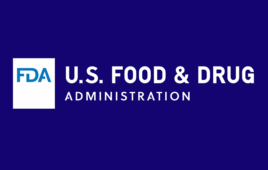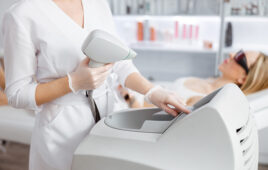
[Image courtesy of Google Satellite]
The survey — which closed in late June and was released yesterday — included 230 responses from medical device organizations with a wide range of sizes, mostly from the E.U. and North America. Only 27% (28% among companies with more than $1 billion in annual revenue) plan to declare full MDR compliance in May.
Nearly half, 46%, plan to leverage the MDR’s transitional provisions to continue selling in the E.U. through 2024 while working on their compliance programs — a move that will create additional work to recertify products and manage inventory.
More than a third of respondents said they planned to spend more the $5 million to achieve compliance.
“Without adequate planning and budgeting, E.U. MDR compliance efforts could lead to strained resourcing, employee resistance, insufficient training, and communication failures across the organization – causing barriers to get EU MDR compliant products to the market. Companies should also start considering the operating model changes to support EU MDR sustainability,” Rajesh Misra, an advisory principal in KPMG’s healthcare & life sciences practice, said in a news release.
More than a third of organizations described the lack of notified bodies as a significant barrier to complying with the MDR. As of August 2019, there were only four notified bodies designated and no more than 10 to 12 designations expected by end of the year, according to RAPS.
“The low number of notified bodies designated so far is making medical device companies particularly apprehensive because they perform a necessary part of the European device approval process,” said RAPS executive director Paul Brooks. “If there are too few notified bodies or their capacity to assess devices under EU MDR is inadequate to meet the demand, it will create bottlenecks that could result in product shortages, including for critically important and high-risk devices patients depend on.”
Device manufacturers should not underestimate MDR deadline strictness, said Sandi Schaible, senior director of analytical chemistry and regulatory toxicology at WuXi Medical Device Testing.
“At this point, it’s not likely that Europe will grant an extension on MDR. If they do, it may not happen until the 11th hour, so don’t count on it,” Schaible said in a statement shared with Medical Design & Outsourcing.
Companies just beginning to prepare for MDR need to work carefully to prioritize product lines, according to Schaible. “Focus on products that have the highest market demand and ROI. And if you’re going to work with a lab testing partner, be transparent. Being forthcoming with details and giving lab partners visibility to forecasts, intervals, and timelines will set you up for success.”
Other RAPS/KPMG survey findings included:
- 66% of organizations surveyed have yet to develop a strategy to sustain their MDR compliance;
- 58% say that they’ve made some progress toward implementation of changes to their Quality Management Systems (QMS), buy have yet to implement the changes;
- Nearly 48% don’t have a strategy developed for EUDAMED, an E.U. database collecting medical device information.




